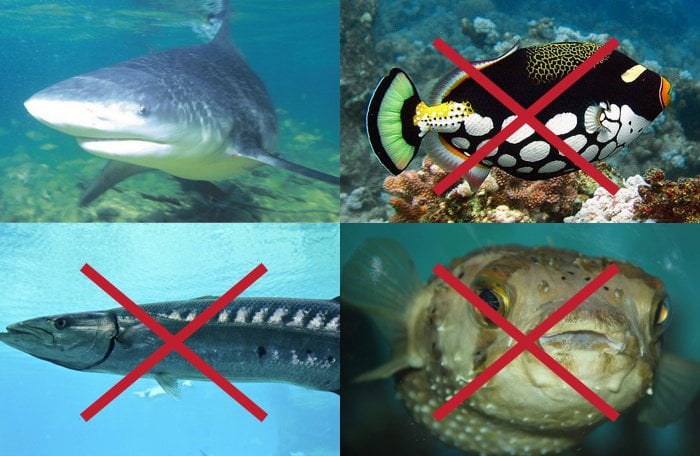Phuket shark bite confirmed

PHUKET: The animal that bit a pregnant Australian at Karon Beach on Tuesday is a shark, confirmed shark expert David Martin, who has more than 25 years of experience filming sharks for BBC, the National Geographic and a number of other publications.
“In this kind of case, it is very important to look at all the facts before making any conclusions, especially with the press, in order to avoid sending out the wrong information – not only for the safety of people, but also for the safety of the marine specie involved,” Mr Martin told the Phuket Gazette.
The key is to combine testimonial information from the victim and information garnered from the injury with an understanding of shark physiology and behavior. Because of his vast experience with sharks, Mr Martin was asked to assist in the investigation by Kongkiat Kittiwattanawong, chief of the Phuket Marine Biological Center’s (PMBC’s) Endangered Species Unit.
“I explained that the first thing to do was to talk to the victim and study the wound, then secure the beach if there was any possible threat. Finally, there is a need to conduct an aerial survey of the area for any unusual marine life activity,” Mr Martin said.
Mr Martin and scientists from the PMBC were the only experts that spoke with the witness prior to announcing their thoughts on what animal could have bitten Jane Neame.
“She told us that she was playing in the waves where the water is about one meter deep and that suddenly she felt something biting her foot,” Mr Martin said, confirming the information that Ms Neame had originally told the Gazette.
“She says it was a strong bite, and then a second strong bite with a bit more shaking. She said she felt the animal’s jaw closing on her foot from the bottom of the foot to the top, with teeth penetrating the flesh.”
Upon examining the wound, Mr Martin found clear teeth marks and incisions on the top and bottom of the foot, which would indicate that the mouth of the animal must be able to open between 10 and 15cm – ruling out the possibility of a trigger fish or puffer fish, possible culprits floated by others taking part in the investigation.
“Also the animal must have had rows of triangularly shaped teeth side by side laterally, with a wide base because the clear teeth marks on the bottom of the foot were wide on the skin, deep and also side by side,” Mr Martin said.
The marks left by the teeth rule out barracuda and moray eels, which have pointed teeth with conic bases and spaces between each tooth.
“Puffer fish and parrot fish don’t have teeth. They have a beak like a parrot – saying that it was one of them is like saying a parrot attacked you when in fact it was a dog. I know it sounds ridiculous, but it’s the same thing,” Mr Martin said.
“The only animal that could have caused this bite, given all the information, is a small shark.”
Of the more than 400 species of shark in the world, fourteen of them are known to be in Thai waters, including black tip reef sharks, grey reef sharks, leopard sharks, whale sharks, bull sharks and so on.
“Only a few species have the ability (size, habitat and behavior) to bite a human by mistake,” Mr Martin noted. “And all shark bite incidents are mistakes.”
The location of the incident, shallow, murky water with a sandy bottom, is the habitat of one such species, the bull shark, Mr Martin pointed out.
“And bull sharks are known around the world to have injured humans in very shallow waters near shore where it’s murky,” he said.
“Yes, it’s the only case in Thailand so far. Yes, it’s very rare. It’s bad luck for the lady that had the injuries.
“The beaches of Thailand are still very, very, very safe from any shark attack. This is one case when there are millions of people swimming in Thai waters every month… This was a shark bite, not a shark attack.”
As the final step in the investigative process, a helicopter survey of the Karon Beach area was conducted on Thursday. However, no unusual activity that might have attracted one or more sharks, such as a bait ball or animal carcass, was found.
“I had a case like this in Mexico. We had to take to the air to see if there was any unusual marine activity like a dead cow or dog – that is what we were searching for in Phuket. But there was nothing.
“Sharks bites do happen. They happen in South Africa, Mozambique, Australia and many other places – it could have been a piece of wood; it just happened to be this unfortunate Australian woman.”
— Isaac Stone Simonelli
Latest Thailand News
Follow The Thaiger on Google News:


























